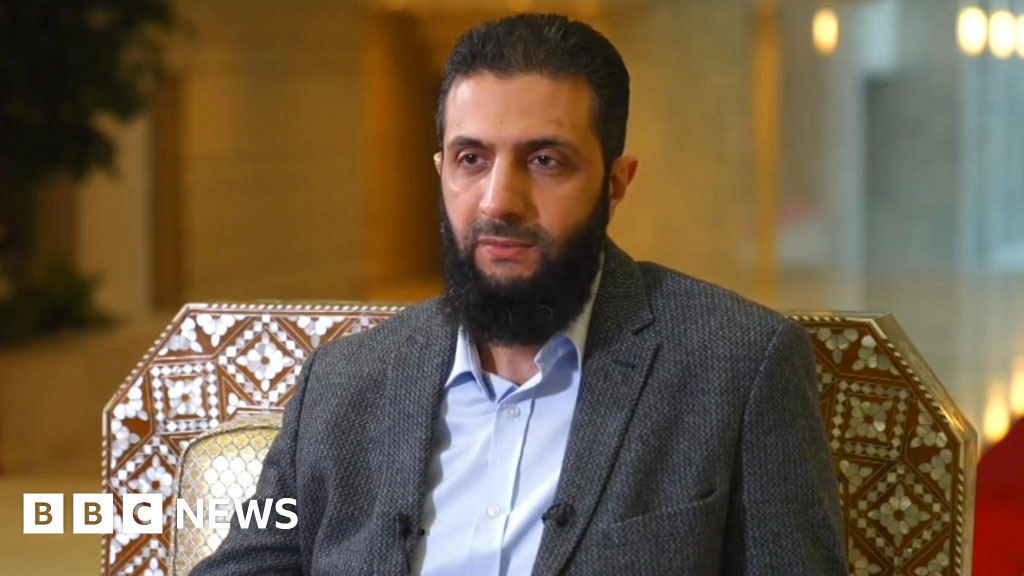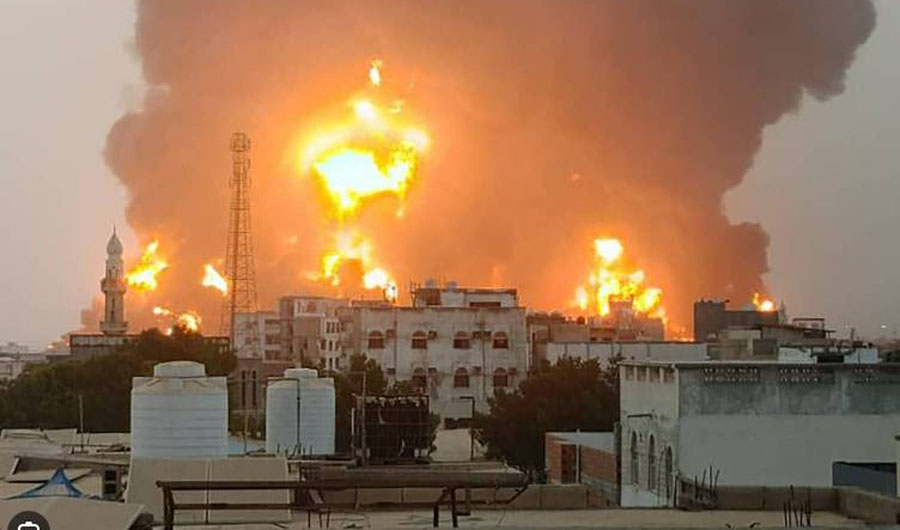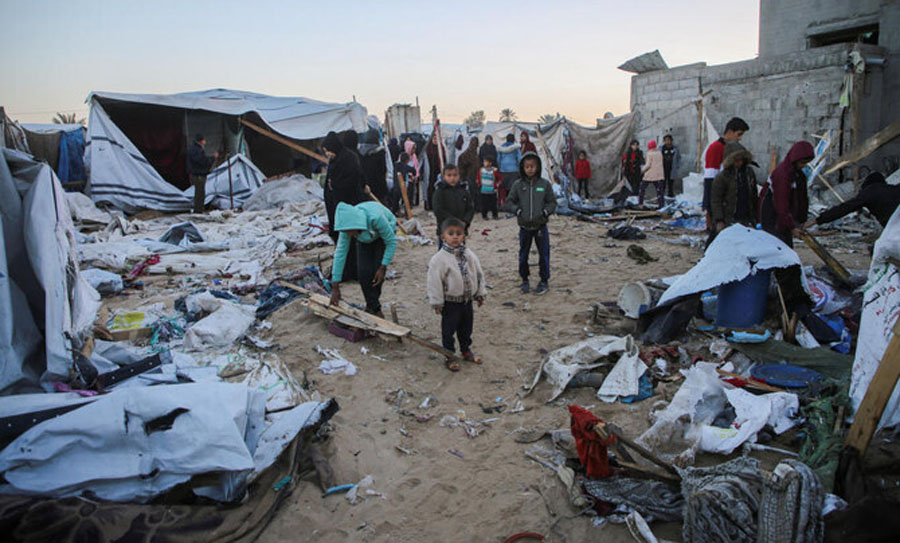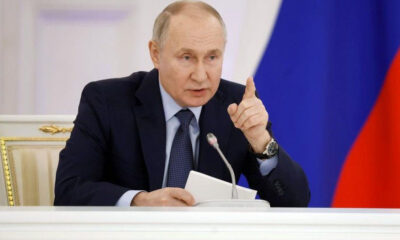International
Russia and Ukraine’s battle for Donbas could decide the war — and it could go either way

- Russia’s war with Ukraine entered a new phase this week with Moscow focusing its war machine on eastern Ukraine.
- The move is seen as a bid for Russia to cement its grip on the Donbas — an area which includes two breakaway, pro-Russian self-proclaimed “republics” — and to try to annex it.
- How Russia’s latest offensive goes in the Donbas region could prove to be extremely significant and decisive in the war against Ukraine, analysts warn.
- It could determine how Ukraine’s territorial boundaries look in weeks and years to come.
Russia’s new offensive in the Donbas region could prove to be extremely significant and decisive in the war, analysts warn, and could determine how the country’s territorial boundaries look in weeks and years to come.
“The Russian war machine in the east could prove to be a very painful threat for Ukraine quickly,” Maximilian Hess, fellow at the Foreign Policy Research Institute, told CNBC Tuesday.
“It’s quite clear that Russia’s war aims remain quite extensive,” Hess added, saying that how the battle for Donbas proceeds “will determine how much of Ukraine east of the Dnipro (a river that bisects Ukraine) that [Russian President Vladimir] Putin carves away.”
“I think it’s pretty clear annexation is Putin’s long term goal, how much annexation is the question,” Hess added.
Russian officials have stated that their main objectives in this new phase of the war is the “complete liberation” of the two breakaway, Russian-backed “People’s Republics” of Luhansk and Donetsk. But most analysts believe that the wider Donbas region, an industrialized area rich in coal reserves, will be annexed by Russia.
READ ALSO:
- Bandits kill newly elected LG councillor, two others, abduct several in Katsina
- Grief as crashed NAF plane pilot identified
- Why Nigerians need man Iike Tinubu as president — South-South Clergymen
Moscow has fomented separatist sentiment in the region over the last eight years ever since it annexed Crimea in 2014, although it denies backing the region’s rebels.
Russia’s long-anticipated offensive in the east appeared to begin in earnest on Monday with its military forces unleashing attacks on a number of areas, with Ukrainian President Volodymyr Zelenskyy saying that “the battle for Donbas” had begun.
By Tuesday morning, Russia’s defense ministry claimed to have struck more than 1,200 targets in Ukraine overnight and later that day, there were numerous reports of intensifying rocket and artillery fire in eastern Ukraine. Officials said Russian forces have seized control of Kreminna, a city in the Luhansk region where street battles reportedly took place.
Wednesday morning, the U.K.’s defense ministry said in an intelligence update that Ukrainian forces were repelling “numerous attempted advances” by Russia in the eastern Donbas region.
The re-focusing on eastern Ukraine comes after Russia pulled back many of its troops from areas around the capital Kyiv and other northern parts of the country after failing to make military gains there. The Pentagon believes that Russia has significantly increased its fighting power in eastern and southern Ukraine now, however, with more battalion tactical groups moved to the area last weekend.
Weapons depleted
Allied global leaders discussed the new phase of Russia’s invasion in a video call on Tuesday with a number of countries, including the U.S. and U.K., promising to send more artillery systems to Ukraine while others, like Germany, pledged more money to help Ukraine buy more weapons.
Just how quickly any new weapons will reach Ukraine is a moot point, with concerns that the war-torn country could struggle to re-arm itself quickly in the east, particularly if Russia increases the frequency of its attacks on its ammunition depots.
Sam Cranny-Evans, a research analyst at the British defense think tank RUSI, told CNBC Tuesday that there was much uncertainty over how the battle for Donbas will progress, and that while both sides will have depleted their respective materiel (military materials and equipment) over the last two months, Ukraine could be in a more vulnerable position.
“The one thing that I’m quite comfortable to say is that I think it [the battle] is going to last a very long time” with both sides having demonstrated “staying power,” he noted.
READ ALSO:
- Nobody will be allowed to destabilise Nigeria — Buhari
- Mother Sues Son For Attempting To Strangle Her
- 2023: Amaechi Is My Project, I Asked Him To Run – Ndume
“There are a few questions surrounding the availability of ammunition for the Ukrainians and that can become a key problem, especially in the opening phases of mass artillery barrages and airstrikes. If you don’t have the munitions to return fire against those kinds of things then they do have a dramatic psychological effect and a physical effect, and they do destroy things, obviously.”
Nonetheless, he noted that Russia too was “probably on a fairly limited clock in terms of what it can do with its personnel capabilities, and with its material capabilities.”
“The Russians have spent an awful lot of missiles in this war so far, which will be quite hard for it to replace … and there’s the additional questions of how much attrition will the Ukrainians inflict on them in Donbas,” he said.
Cranny-Evans said it’s not impossible to foresee a situation in which the Ukrainians are able to push back against the Russians in Donbas, as they have shown themselves doggedly capable of doing elsewhere.
“If they can organize, and if they can equip their troops adequately, they may be able to do that. And some analysts are cautiously optimistic that Ukraine might even be able to win this war … a lot really does pivot on the next phase of the conflict and it will show which side is likely to win,” he noted.
Who ‘wins’?
The reason analysts find it hard to assess how significant the battle of Donbas could turn out to be in the wider war is that it’s hard to gauge what Putin’s ultimate objectives are in Ukraine.
RUSI’s Cranny-Evans noted that the big question remains whether, by focusing on its self-proclaimed mission to “liberate” Donbas, Putin has abandoned his “maximalist aim of regime change in Ukraine and capturing Kyiv” or whether it might accept a more limited victory in the east.
For Ukraine, he said, there could be a difficult price to pay if it loses the battle for Donbas and Russia annexes the region. In any case, defining the winner and loser of the war will be no easy task amid the already-immense destruction seen in Ukraine.
“[You could say] that Ukraine has won because its country still exists but if it does lose Donbass entirely, is that really a victory? Does it mean that peace will last forever? Or will Ukraine have to fight another war in 10 years time? There is a lot of stake for the Ukrainians,” Cranny-Evans said.
In its assessment of what the next phase of the conflict might entail, the U.S.-based Institute for the Study of War said Monday that Russia’s offensive “is unlikely to be dramatically more successful than previous Russian offensives” but cautioned that its forces “may be able to wear down Ukrainian defenders or achieve limited gains.”
The think tank noted that Russian forces had not taken the “operational pause” necessary to “reconstitute” and properly integrate damaged units withdrawn from northeastern Ukraine into operations in eastern Ukraine.
“As we have assessed previously, Russian forces withdrawn from around Kyiv and going back to fight in Donbas have, at best, been patched up and filled out with soldiers from other damaged units, and the Russian military has few, if any, cohesive units not previously deployed to Ukraine to funnel into new operations,” it said.
It added that frequent reports of disastrously low Russian morale and continuing logistical challenges indicate that “the effective combat power of Russian units in eastern Ukraine is a fraction of their on-paper strength in numbers of battalion tactical groups.”
The institute noted that while Russian forces could wear down Ukrainian positions through “heavy concentration of firepower and sheer weight of numbers,” this would come at a “high cost” and that a sudden and dramatic Russian offensive success remains highly unlikely.
CNBC
International
Syria not threat to world, rebel leader al-Sharaa tells BBC

Syria not threat to world, rebel leader al-Sharaa tells BBC
The de facto leader of Syria, Ahmed al-Sharaa, has said the country is exhausted by war and is not a threat to its neighbours or to the West.
In an interview with the BBC in Damascus, he called for sanctions on Syria to be lifted.
“Now, after all that has happened, sanctions must be lifted because they were targeted at the old regime. The victim and the oppressor should not be treated in the same way,” he said.
Sharaa led the lightning offensive that toppled Bashar al-Assad’s regime less than two weeks ago. He is the leader of the Hayat Tahrir al-Sham (HTS), the dominant group in the rebel alliance, and was previously known by his nom de guerre of Abu Mohammed al-Jolani.
He said HTS should be de-listed as a terrorist organisation. It is designated as one by the UN, US, EU and UK, among many others, as it started as a splinter group of al-Qaeda, which it broke away from in 2016.
Sharaa said HTS was not a terrorist group.
They did not target civilians or civilian areas, he said. In fact, they considered themselves to be victim of the crimes of the Assad regime.
He denied that he wanted to turn Syria into a version of Afghanistan.
READ ALSO:
- Tinubu’s 2025 budget will increase poverty, worsen economy – PDP
- Real Madrid outclass Pachuca to win FIFA Intercontinental Cup
- Israel hits ports, energy sites in Yemen after missile intercepted
Sharaa said the countries were very different, with different traditions. Afghanistan was a tribal society. In Syria, he said, there was a different mindset.
He said he believed in education for women.
“We’ve had universities in Idlib for more than eight years,” Sharaa said, referring to Syria’s north-western province that has been held by rebels since 2011.
“I think the percentage of women in universities is more than 60%.”
And when asked whether the consumption of alcohol would be allowed, Sharaa said: “There are many things I just don’t have the right to talk about because they are legal issues.”
He added that there would be a “Syrian committee of legal experts to write a constitution. They will decide. And any ruler or president will have to follow the law”.
Sharaa was relaxed throughout the interview, wearing civilian clothes, and tried to offer reassurance to all those who believe his group has not broken with its extremist past.
Many Syrians do not believe him.
The actions of Syria’s new rulers in the next few months will indicate the kind of country they want Syria to be – and the way they want to rule it.
Syria not threat to world, rebel leader al-Sharaa tells BBC
BBC
International
Israel hits ports, energy sites in Yemen after missile intercepted

Israel hits ports, energy sites in Yemen after missile intercepted
JERUSALEM: Israel said Thursday it struck ports and energy infrastructure it alleges are used by Houthi militants, after intercepting a missile fired by the group.
Israel’s military said it “conducted precise strikes on Houthi military targets in Yemen — including ports and energy infrastructure in Sanaa, which the Houthis have been using in ways that effectively contributed to their military actions.”
The announcement came shortly after Israel said it had intercepted a missile fired from Yemen.
Al-Masira, a media channel belonging to the Houthis, said a series of “aggressive raids” were launched in the Yemeni capital of Sanaa and the port city of Hodeidah.
It reported raids that “targeted two central power plants” in Yemen’s capital Sanaa, while in Hodeidah it said “the enemy launched four aggressive raids targeting the port… and two raids targeting” an oil facility.
The strikes were the second time this week that Israel’s military has intercepted a missile from Yemen.
On Monday, the Houthis claimed a missile launch they said was aimed at “a military target of the Israeli enemy in the occupied area of Yaffa” — a reference to Israel’s Tel Aviv area.
READ ALSO:
- Gaza mediators intensify ceasefire efforts, Israeli strikes kill 20 people
- PDP expels South-East national vice chairperson over anti-party activities
- Your information on $1bn investment misleading, Dangote Refinery replies NNPCL
Also Monday, an Israeli navy missile boat intercepted a drone in the Mediterranean after it was launched from Yemen, the military said.
The Houthi militants have said they are acting in solidarity with Palestinians and pledged Monday to continue operations “until the aggression on Gaza stops and the siege is lifted.”
On December 9, a drone claimed by Houthis exploded on the top floor of a residential building in the central Israel city of Yavne, causing no casualties.
In July, a Houthi drone attack in Tel Aviv killed an Israeli civilian, prompting retaliatory strikes on the Yemeni port of Hodeidah.
The Houthis have also regularly targeted shipping in the Red Sea and the Gulf of Aden, leading to retaliatory strikes on Houthi targets by United States and sometimes British forces.
Israeli military spokesman Daniel Hagari said the group had become a “global threat,” pointing to Iran’s support for the militants.
“We will continue to act against anyone, anyone in the Middle East, that threatens the state of Israel,” he said.
Israel hits ports, energy sites in Yemen after missile intercepted
International
Gaza mediators intensify ceasefire efforts, Israeli strikes kill 20 people

Gaza mediators intensify ceasefire efforts, Israeli strikes kill 20 people
CAIRO: The United States, joined by Arab mediators, sought on Wednesday to conclude an agreement between Israel and Hamas to halt the 14-month-old war in the Gaza Strip where medics said Israeli strikes killed at least 20 Palestinians overnight.
A Palestinian official close to the negotiations said on Wednesday that mediators had narrowed gaps on most of the agreement’s clauses. He said Israel had introduced conditions which Hamas rejected but would not elaborate.
On Tuesday, sources close to the talks in Cairo, the Egyptian capital, said an agreement could be signed in coming days on a ceasefire and a release of hostages held in Gaza in return for Palestinian prisoners held by Israel.
Medics said an Israeli airstrike killed at least 10 people in a house in the northern town of Beit Lahiya while six were killed in separate airstrikes in Gaza City, Nuseirat camp in central areas, and Rafah near the border with Egypt.
In Beit Hanoun in the northern Gaza Strip, medics said four people were killed in an airstrike on a house. There was no immediate comment from the Israeli military spokesman.
Israeli forces have operated in the towns of Beit Hanoun and Beit Lahiya as well as the nearby Jabalia camp since October, in a campaign the military said aimed to prevent Hamas militants from regrouping.
Palestinians accuse Israel of carrying out acts of “ethnic cleansing” to depopulate the northern edge of the enclave to create a buffer zone. Israel denies it.
READ ALSO:
- PDP expels South-East national vice chairperson over anti-party activities
- Your information on $1bn investment misleading, Dangote Refinery replies NNPCL
- Many die at Ibadan children’s Christmas party stampede, organisers arrested
Hamas does not disclose its casualties, and the Palestinian health ministry does not distinguish in its daily death toll between combatants and non-combatants.
On Wednesday, the Israeli military said it struck a number of Hamas militants planning an imminent attack against Israeli forces operating in Jabalia.
Later on Wednesday, Muhammad Saleh, director of Al-Awda Hospital in Jabalia, said Israeli shelling in the vicinity damaged the facility, wounding seven medics and one patient inside the hospital.
The Israeli military had no immediate comment.
In the Central Gaza camp of Bureij, Palestinian families began leaving some districts after the army posted new evacuation orders on X and in written and audio messages to mobile phones of some of the population there, citing new firing of rockets by Palestinian militants from the area.
CEASEFIRE GAINS MOMENTUM
The US administration, joined by mediators from Egypt and Qatar, has made intensive efforts in recent days to advance the talks before President Joe Biden leaves office next month.
In Jerusalem, Israeli President Isaac Herzog met Adam Boehler, US President-elect Donald Trump’s designated envoy for hostage affairs. Trump has threatened that “all hell is going to break out” if Hamas does not release its hostages by Jan. 20, the day Trump returns to the White House.
CIA Director William Burns was due in Doha on Wednesday for talks with Qatari Prime Minister Sheikh Mohammed bin Abdulrahman Al-Thani on bridging remaining gaps between Israel and Hamas, other knowledgeable sources said. The CIA declined to comment.
Israeli negotiators were in Doha on Monday looking to bridge gaps between Israel and Hamas on a deal Biden outlined in May.
There have been repeated rounds of talks over the past year, all of which have failed, with Israel insisting on retaining a military presence in Gaza and Hamas refusing to release hostages until the troops pulled out.
The war in Gaza, triggered by a Hamas-led attack on communities in southern Israel that killed some 1,200 people and saw more than 250 abducted as hostages, has sent shockwaves across the Middle East and left Israel isolated internationally.
Israel’s campaign has killed more than 45,000 Palestinians, displaced most of the 2.3 million population and reduced much of the coastal enclave to ruins.
Gaza mediators intensify ceasefire efforts, Israeli strikes kill 20 people
ARAB NEWS
-

 Railway20 hours ago
Railway20 hours agoLagos Rail Mass Transit part of FG free train ride – NRC
-

 metro2 days ago
metro2 days agoCourt stops customs from seizing imported rice in open market
-

 metro3 days ago
metro3 days agoFG transfers electricity market regulatory oversight in Lagos to LASERC
-

 metro2 days ago
metro2 days agoIbadan stampede: Tinubu orders probe as death toll hits 40
-

 metro1 day ago
metro1 day agoIbadan stampede: Ooni reacts after arrest of ex-wife
-

 metro2 days ago
metro2 days agoAfe Babalola: Court grants Dele Farotimi bail, barred from media interviews
-

 metro21 hours ago
metro21 hours agoNIMC warns against extortion, reaffirms free NIN enrollment
-

 News2 days ago
News2 days agoAdebayo Ogunlesi, 2 other Nigerians make Forbes 50 wealthiest Black Americans list 2024













